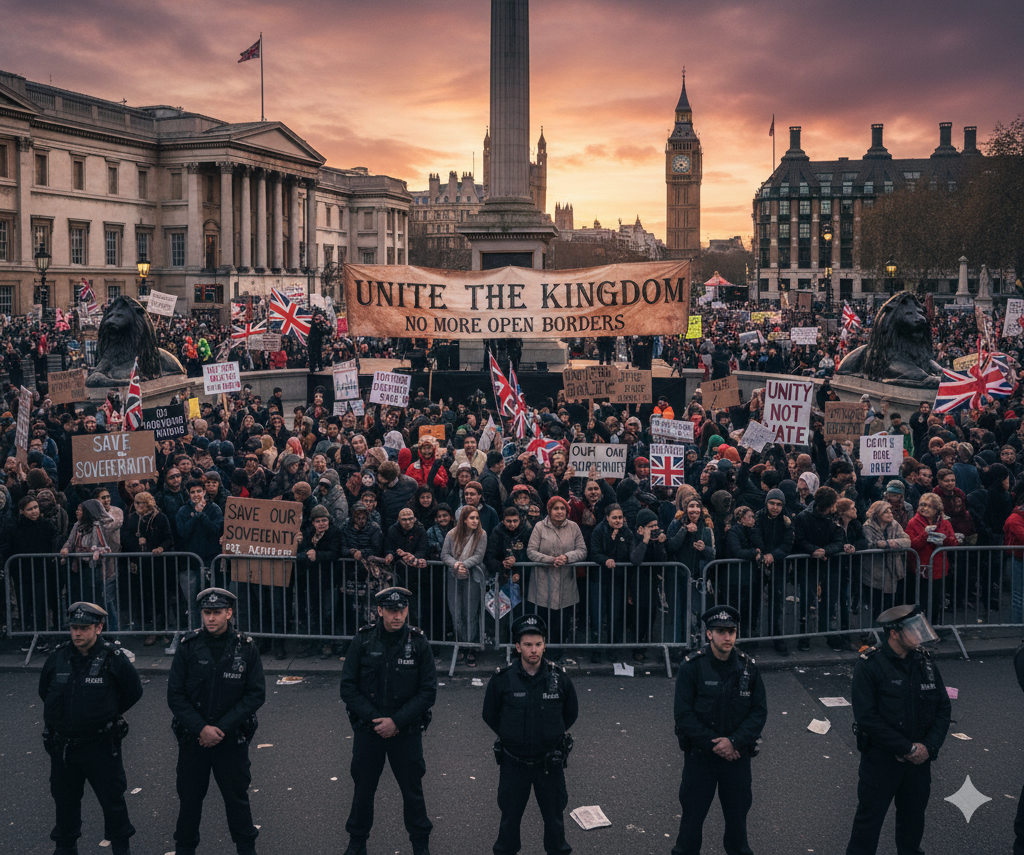Introduction: A Watershed Moment in UK Protest Politics
On 13 September 2025, over 110,000 people took to the streets of central London in the ‘Unite the Kingdom’ march, organized by far‑right activist Tommy Robinson. This large turnout, accompanied by clashes with police and considerable media attention, marks one of the biggest right‑wing demonstrations in UK history. What started as a rally focused on free speech drew sharp public scrutiny when signs, symbols, and rhetoric turned anti‑migrant.
Key Facts & Figures
– Date & Organizer: 13 September 2025, organized by Tommy Robinson
– Number of Protesters: Approx. 110,000; Counter‑protest by ~5,000 people
– Police Deployment: 1,600+ officers, 26 injured, ~25 arrests
– Symbolism: British & English flags, anti‑immigration slogans, criticism of PM Keir Starmer
– Immigration Context: Over 28,000 migrants arrived in UK via small boats in 2025
Political & Social Underpinnings
Immigration has become politicized as an identity issue. Far‑right organizers leveraged national symbols and populist rhetoric. Public anxiety centers around housing, jobs, and services, though many claims lack factual support.
Comparative Insights
Similar tensions exist in France, Germany, and Scandinavia, where large protests and nationalist parties push immigration debates to the forefront. Approaches vary, from stricter controls to integration programs.
Consequences and Implications
1. Political Polarization deepens urban/rural divides.
2. Strain on public services, especially housing and health.
3. Security costs from police deployments and injuries.
4. Media amplification risks normalizing extremist narratives.
Policy Considerations & Recommendations
– Transparent immigration reporting
– Regulation of protests while protecting free speech
– Community outreach and integration programs
– Narrative management to counter misinformation
– Balancing rights and security with rule of law
FAQs
Q1: Is this protest representative of most UK views? Not necessarily — extremist voices are amplified.
Q2: How many migrants crossed via small boats? Over 28,000 in 2025.
Q3: What risks do protests pose? They normalize xenophobia and risk violence.
Q4: Can they change policy? Yes, by pushing governments to act.
Conclusion: What ‘Unite the Kingdom’ Tells Us
The rally reflects rising identity politics and demands for visibility from groups feeling unheard. Ignoring concerns risks escalation, but heavy‑handed or divisive responses will worsen polarization. The path forward requires honest dialogue, factual debate, and balanced policies that strengthen trust.







